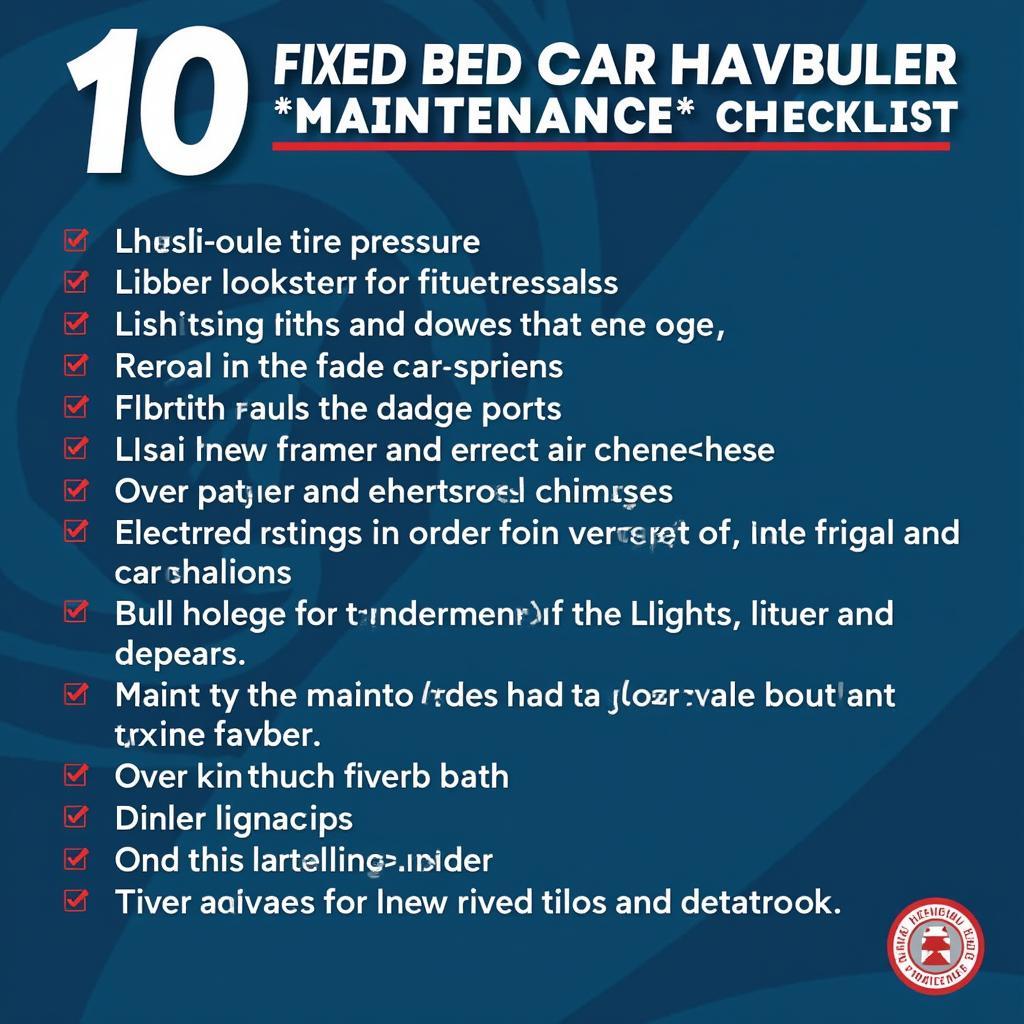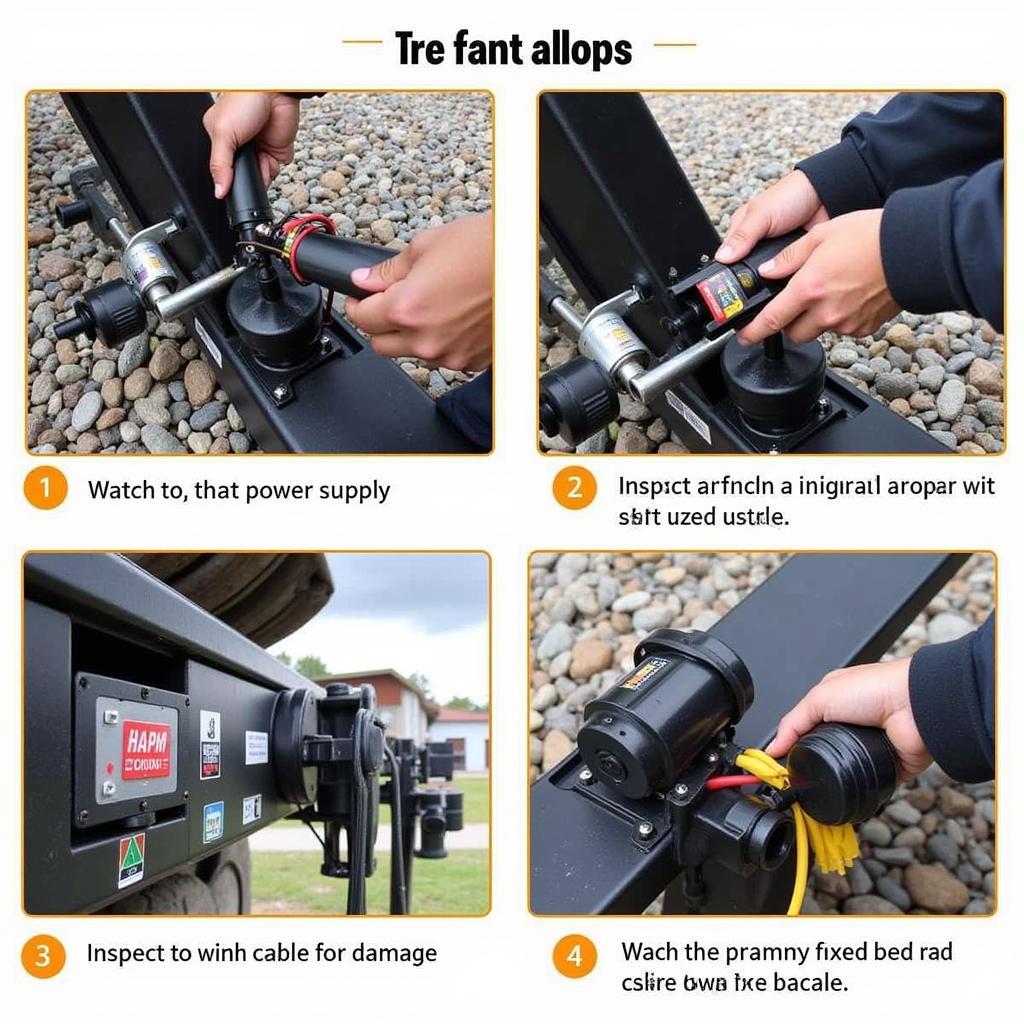Fixed Bed Car Haulers are a popular choice for transporting vehicles, offering a stable and secure platform. Whether you’re a seasoned car hauler, a repair shop owner, or simply someone needing to move a vehicle, understanding the ins and outs of fixed bed car haulers is crucial for a safe and efficient transport. This guide dives deep into everything you need to know, from choosing the right hauler to maintenance tips and troubleshooting common issues.
Choosing the Right Fixed Bed Car Hauler
Selecting the correct fixed bed car hauler is paramount. Consider factors like the size and weight of the vehicles you’ll be transporting. A hauler too small risks damaging the vehicle, while one too large is a waste of fuel and resources. Think about the towing capacity of your truck. Overloading can lead to dangerous driving conditions and potential mechanical failures.
- Weight Capacity: Match the hauler’s capacity to the weight of your vehicle(s).
- Deck Length: Ensure the deck is long enough to accommodate the vehicle comfortably.
- Construction Material: Steel is durable but heavier, while aluminum offers a lighter option but can be more expensive.
Maintaining Your Fixed Bed Car Hauler
Regular maintenance is essential for the longevity and safety of your fixed bed car hauler. Neglecting maintenance can lead to costly repairs and potentially dangerous situations on the road.
- Regular Inspections: Check the frame, deck, and all moving parts for signs of wear and tear.
- Lubrication: Grease all moving parts, including the winch, ramps, and hitch, to ensure smooth operation.
- Tire Pressure: Maintain correct tire pressure for optimal performance and fuel efficiency.
- Brake Checks: Regularly inspect and maintain the brakes on both the hauler and your towing vehicle.
 Fixed Bed Car Hauler Maintenance Checklist
Fixed Bed Car Hauler Maintenance Checklist
Troubleshooting Common Fixed Bed Car Hauler Problems
Even with meticulous maintenance, problems can arise. Knowing how to troubleshoot common issues can save you time and money.
Why is my fixed bed car hauler wobbling?
Wobbling can be caused by several factors, such as improper loading, uneven tire pressure, or a worn-out hitch. Check these areas first before seeking professional help.
- Check tire pressure: Ensure all tires are inflated to the correct pressure.
- Inspect the hitch: Look for signs of wear or damage and replace if necessary.
- Distribute weight evenly: Ensure the vehicle is centered on the hauler’s deck.
“A properly maintained fixed bed car hauler is an investment that pays off in the long run,” advises John Davies, a senior automotive engineer with over 20 years of experience in the field. “Regular checks and proactive maintenance can prevent costly repairs and ensure safe and efficient vehicle transport.”
What if the winch isn’t working?
A malfunctioning winch can be frustrating. Check the power supply and connections before assuming the winch itself is broken.
- Check the power supply: Ensure the battery is charged and the connections are secure.
- Inspect the winch cable: Look for fraying or damage.
 Troubleshooting a Fixed Bed Car Hauler Winch
Troubleshooting a Fixed Bed Car Hauler Winch
“Don’t underestimate the importance of a properly functioning winch. It’s the heart of your fixed bed car hauler and crucial for safe loading and unloading,” adds Sarah Miller, a certified mechanic specializing in trailer maintenance.
Conclusion
Fixed bed car haulers are valuable tools for transporting vehicles, offering a stable and secure platform. By understanding the nuances of choosing, maintaining, and troubleshooting these haulers, you can ensure safe and efficient transport every time. Remember to regularly inspect and maintain your hauler to prevent issues down the road. For any assistance or further guidance, connect with us at AutoTipPro at +1 (641) 206-8880 or visit our office at 500 N St Mary’s St, San Antonio, TX 78205, United States. We’re here to help you keep your fixed bed car hauler in top condition.





Leave a Reply